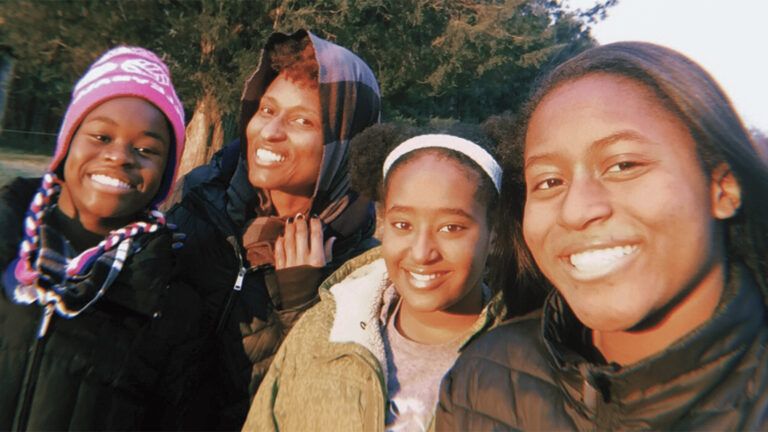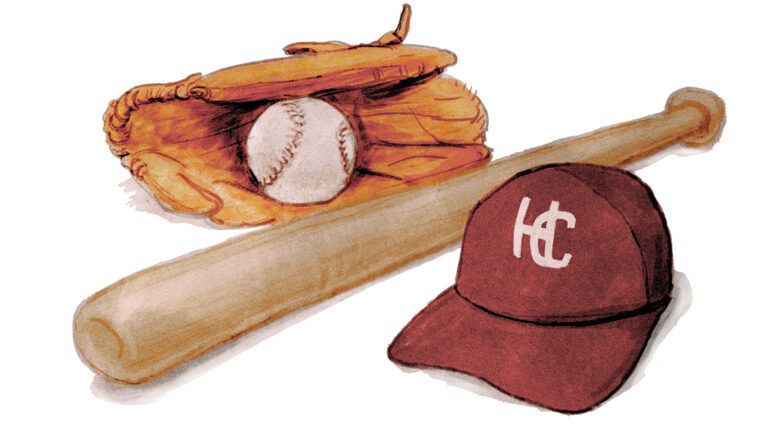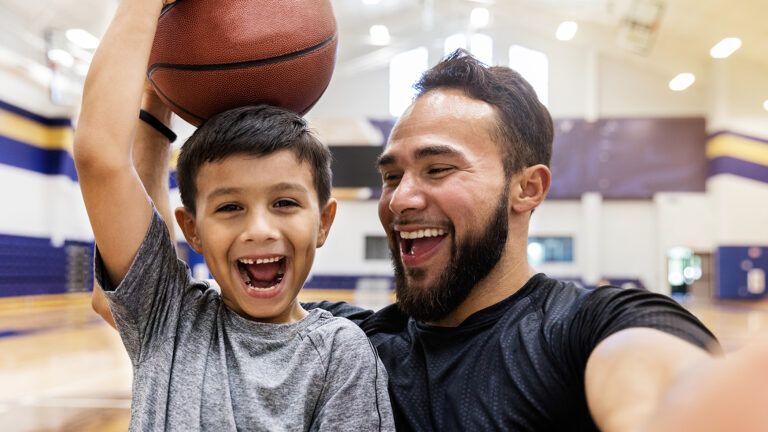I was in the kitchen when the phone rang, rinsing grapes in a colander and thinking about making a peanut-butter-and-jelly sandwich for my two-year-old daughter, Easton. She was outside chasing butterflies.
I checked caller ID. It said Peter. Mom’s husband. Immediately I knew something must have happened. Mom was the one who always called.
She had remarried after being divorced for many years and had moved with Peter to his home in Amsterdam. “Lis?” he said and paused. “What’s wrong?” I asked.
“Your mother has had…a heart attack.”
I sank into a chair, holding the phone tightly against my ear. My eyes were glued on Easton running around the backyard. Everything seemed to move so slowly.
“She’s alive,” Peter went on. “Things are going to be all right. The doctors are hopeful.”
“I’m coming to Amsterdam right now.”
“No, she’d want you to stay in California for your work. The doctors have it under control.”
Mom and I talked almost every day. She’d call me first thing in the morning. I was shooting the TV series Heroes at the time. Thanksgiving break was coming up and soon she’d be out visiting us for Christmas.
I couldn’t wait to see her, and I know she looked forward to seeing me, her only child, and Easton, her only grandchild.
Just a few days earlier, Mom had called when I was driving to the studio. I was in a good place, feeling at peace with myself. I told her that I liked to use the time in the car to meditate, to think about things. “I feel much closer to God than I ever have,” I said.
Then I paused. I didn’t want to hurt her feelings, but there was one thing Mom had insisted on, even in my rebellious teens. That I always be honest with her, tell her the truth even if it was something she might not want to hear. “Mom, maybe I could use this time for prayer and we can talk later?”
“Of course,” she said. “Let’s both get closer to God.”
Was I always going to regret cutting that conversation short? Was this going to be one of the last things we said to each other? I couldn’t bear to think of it. “Peter, you’ve got to tell me what the doctors say.”
“I’ll let you know as soon as I know,” he said. I replayed every moment mom and I had had together. She’d grown up in a traditional Southern family, but left home as soon as she could. She was something of a rebel, a nature lover, a spiritual seeker.
She and Dad met in New York City, and were drawn to each other in the way that opposites attract. He was a brilliant lawyer and businessman, German-born, striving for success in the big city. She would have been happy on a commune in the country.
They settled in the suburbs and Mom put her creativity to work in the garden, but the life of a suburban housewife didn’t suit her–not that I understood that then.
Mom and Dad divorced when I was eight. Mom and I stayed on in my childhood home. She wanted to make me feel safe and secure.
“Lis,” she said, sitting me down one day, “I can’t outsmart you. It’s all I can do to keep us going, so you have to make me a deal. If you always tell me the truth, then you will never be punished for what you tell me.”
Only when I went to college did I finally understand what sacrifices she’d made to raise me. She sold the house in the New York suburbs and bought a plot of land in rural Missouri where she could garden and board her horse.
I was appalled. It seemed like the back of beyond, and the old farmhouse had no plumbing or electricity.
One winter break I woke up in the middle of the night to go to the bathroom. I had to bundle myself in a blanket, put on my slippers and step out into the darkness to find the outhouse.
I stood outside in the pitch-black night. I heard the trees rustling and Mom’s horse whinnying in the barn. I looked up and saw millions of stars strewn across the sky, layer upon layer. For the first time I saw the beauty of it.
Mom, now I understand, I thought. This is your world, this is the place that makes you happiest.
I graduated and launched my acting career, working on both coasts. Mom stayed in her farmhouse, offering constant support. She only sold the place when she married Peter. She’d had some health issues, but she was only 60. I couldn’t imagine my life without her.
Peter called back the next morning. “They’ve put her in a drug-induced coma,” he said, “to stabilize her. Wait till she wakes up before you come.”
“No,” I said this time. “I’m coming right now.” I barely paused to pack. The whole flight over, I kept thinking of what I would tell Mom. “I’m moving here, Mom. I’m going to take a break from the show. I’ll stay as long as it takes. I’ll help you recover.”
It was my turn to take care of her. Maybe Easton could come over and join us.
When I landed, Peter was waiting at the gate. I rushed forward. “We’ll talk in the car,” he said gravely. Oh no, I thought, he’s going to tell me something terrible. The walk to the parking lot was interminable. I couldn’t bear the silence.
In the car Peter broke down in tears. He explained in fits and starts in his accented English. The doctors had tried to awaken her from the coma… they weren’t able to. She was nonresponsive. Now they were talking about taking her off life support….
Just yesterday he’d said that everything was going to be okay. How did “okay” turn into this? I didn’t want to believe him. I needed to see my mother, to talk to her. She would be all right once I was there.
But the instant I walked into her hospital room, I could tell. If you’ve ever been with someone who’s dying you know what it’s like to see them and feel that their spirit is leaving. Mom lay still, her face and body bloated, tubes pressing into her skin, going up her nose.
Even so, I thought, You are not going to die. If I have to sit here and hold your hand for a year to make you understand that, that’s what I’m going to do. Mom had to be around. To see her granddaughter grow up. To enjoy life. To call me in the mornings.
I went to the house she shared with Peter and sat at her desk. I looked out the double windows, at the incredible garden she had planted in a tiny concrete space–bushes and trees, gladiolus, irises, begonias.
It was like a little nature sanctuary in the middle of the city, so much so that hedgehogs came to live there. I found her Bible and took it back with me to the hospital.
Mom’s best friend, Nancy, flew out. One of us–Nancy, Peter or me–was always at her bedside. We listened to the doctors, but we couldn’t give up hope. I read to Mom from the Bible for hours but she didn’t move. She didn’t respond. Her chest rose and fell only with the pumping of the respirator.
Nancy and I prayed and prayed. We played music. We talked to her. I would be strong for her because she couldn’t be strong for herself. This was my chance to be a better daughter than I had ever been before. But two days went by and there was no change. Mom didn’t speak or open her eyes.
The neurosurgeons spoke very frankly. “We’ve done all we can do. There is no brain function.” Her heart attack had been so massive that it caused irreversible brain damage. “There’s nothing else we can do.”
I knew that having no brain function would have been my mother’s worst nightmare. She was a thinker, a seeker. I had to let her go. We always told each other the truth. Mom needed that from me now.
The doctors removed her from life support. It was time for me to say goodbye, the hardest thing I would ever do.
I climbed into bed with her, laid my head on her chest and put my arm around her waist, tears running down my face.
“Mom, it’s okay,” I said. “I’m going to be okay.”
I kept my head on her chest and stroked her arm.
“You did it, Mom. You taught me to stand on my own two feet and carry on. You taught me that I could make it in this world. You did such a great job teaching me how to be a good person, and I’m going to do that for Easton.
"You never doubted me and you always told me how good and powerful and precious I was. You taught me to seek God. You wanted me to have courage and confidence and I do, Mom. Because of you.”
I waited, letting it sink in. I didn’t want to say the next part, but I had to. I knew what they’d said about brain activity, but then, I wasn’t speaking to her brain. I was speaking to her soul.
“What I’m trying to say, Mom, is that it’s okay for you to go. You’re free now. You’re free from this body. Go to that place you’ve been waiting to see. God is ready for you. I’m going to be okay.” Each time I said it, I believed it a little more.
I lay there for a long time. Then I sat up and took her hand. “Goodbye, Mom. I love you.” I kissed her forehead, and then I stood and walked out of the room without looking back.
I had this feeling that she couldn’t leave unless I left. She had to know I was carrying on, not just saying I would be brave but actually being brave.
“Your mom would want you to go back to work and back to Easton,” Nancy told me. I packed my bags and headed to the airport. Almost as soon as the plane was in the air, Mom left this earth.
But she didn’t leave me. She was smart and passionate and walked through life with a power that she bestowed on me. She got the big things right, the soul-deepening, character-creating things.
One of the last things she said to me was, “Let’s both get closer to God.” It is a message I will always carry with me, every day, until I see her again.
Watch as Elisabeth discusses her commitment to the fight against heart disease.
Download your FREE ebook, True Inspirational Stories: 9 Real Life Stories of Hope & Faith





